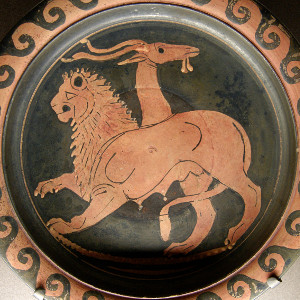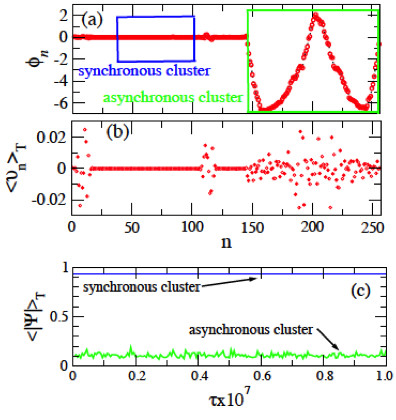
Chimeras in SQUID Metamaterials
In recent a article of QCN researchers in Physical Review B, the mythological beast chimera appears on the title of the paper. The acronym SQUID stands for Superconducting Quantum Interference Devices (SQUIDs). Homer in the text of Iliad provides terrifying details about the Chimera: ...But when he had received from him the evil token of his daughter's husband, first he bade him slay the raging Chimera. She was of divine stock, not of men, in the fore part a lion, in the hinder a serpent, and in the midst a goat, breathing forth in terrible wise the might of blazing fire. And Bellerophon slew her, trusting in the signs of the gods.... The authors assemble a simple looking but complex in dynamical content model of coupled SQUID's to form a synthetic material and after a series of simulations find that in many cases the coherent and incoherent clusters that form a chimera state maintain their individual sizes for ultra long times larger than 107 of the basic period of the SQUID. Chimera states represent a spontaneous breakup of a population of identical oscillators that are identically coupled, into subpopulations displaying synchronized and desynchronized behavior. The numerical observations and the fragility of the results in connection with the effective variation of the controlling parameters in phase space pose challenging questions if such dynamical objects can be recorded in experimental settings.

More on SQUIDS:

[Click on the video to see the flux motion of the coexisting
synchronous and asynchronous clusters of 256 coupled SQUIDS.]


